Summer Safety and Vacationing During COVID-19
As summer 2020 rolls around, many people are wondering how to have fun without contracting or contributing to the spread of the 2019 coronavirus disease (COVID-19). While some experts suggest “there’s no such thing as safe,” some activities are less risky than others.
Before leaving your home, however, you should make your own risk assessment. If you are at increased risk for severe illness, you may need to take extra precautions or skip some activities altogether.
You should also remember that, even outside of the virus, summertime presents unique dangers, like increased car accidents, boating accidents, swimming pool accidents, and more.
At The Law Office of Michael R. Loewen, we want you to have a safe, enjoyable summer, so we’ve decided to share some of the top safety tips from around the web:
Opt for Outdoor Activities When Possible
Experts agree that outdoor activities are safer than indoor ones. One infectious disease physician told The Washington Post:
“We have very little evidence of outdoor transmission. It’s not zero — there are definitely cases reported — but it’s much, much lower than inside.”
If you want to go out to eat, consider a picnic or barbeque instead. If you do decide to go to a restaurant, ask for outdoor seating. These are just a couple of ways you can socialize outside and mitigate your risk.
Other fun outdoor activities include:
- Farmer’s markets
- Hiking
- Running and biking
- Swimming
- Camping
Practice Social Distancing
Whenever you are in public, wear a cloth face covering and keep at least 6 feet of distance between yourself and people outside of your household. According to the Centers for Disease Control and Prevention (CDC), COVID-19 spreads when people are in close contact with one another for prolonged periods, so keeping distance is one of the best ways to slow the spread of the virus.
When social distancing is difficult to maintain, masks or cloth face coverings also help prevent the spread of COVID-19 by ensuring everyone keeps their germs and respiratory droplets to themselves.
You should also practice good hygiene both in and out of the house. Avoid touching your face with unwashed hands and wash your hands with soap and water regularly. If soap and water are unavailable, use hand sanitizer with at least 60% alcohol.
Think Twice About Traveling
The CDC asserts:
“Travel increases your chances of getting and spreading COVID-19.”
The government organization also recommends staying home as “the best way to protect yourself and others from getting sick.”
If you do travel, taking a road trip with your household could help you stay away from other people. Still, you will have to navigate public restrooms and stop for food and supplies. Similarly, the risk from air travel comes from airports, security lines, and other high-traffic areas. Once you are in the plane, National Geographic explains, the vehicle’s filtration system can actually help prevent the spread of COVID-19.
As far as lodging, camping may be the safest choice. Advice from an infectious disease physician confirms:
“If you’re camping with people you live with, you’re basically just taking your house to a different place, and that’s fine.”
Once again, the biggest risk is from public bathrooms and shared facilities where you may encounter other people.
Experts call Hotels, Airbnbs, and other rental lodgings “moderate risk.” Once again, this risk comes primarily from running into people. If you are going to stay at a hotel, experts recommend calling ahead and asking about their COVID-19 precautions, as well.
Once you are there, you may want to wipe down commonly used surfaces in your room, and you should wash your hands before and after leaving and avoid shared spaces like the lobby and elevators.
Consider ordering room service instead of visiting the hotel restaurant, even if restaurant seating is open.
Takeaways
COVID-19 does not have to mean you stay home all summer, but you should be careful, especially if you are at higher risk for the virus. If you’re driving, you should also be safe behind the wheel.
Just like there is “no such thing as a zero risk activity” with COVID-19, you cannot prevent the careless actions of others.
If you are harmed by someone else’s negligence, our attorneys are always here to help.
Call us at 916.229.6776 and tell us about your case or schedule a free consultation online today.

